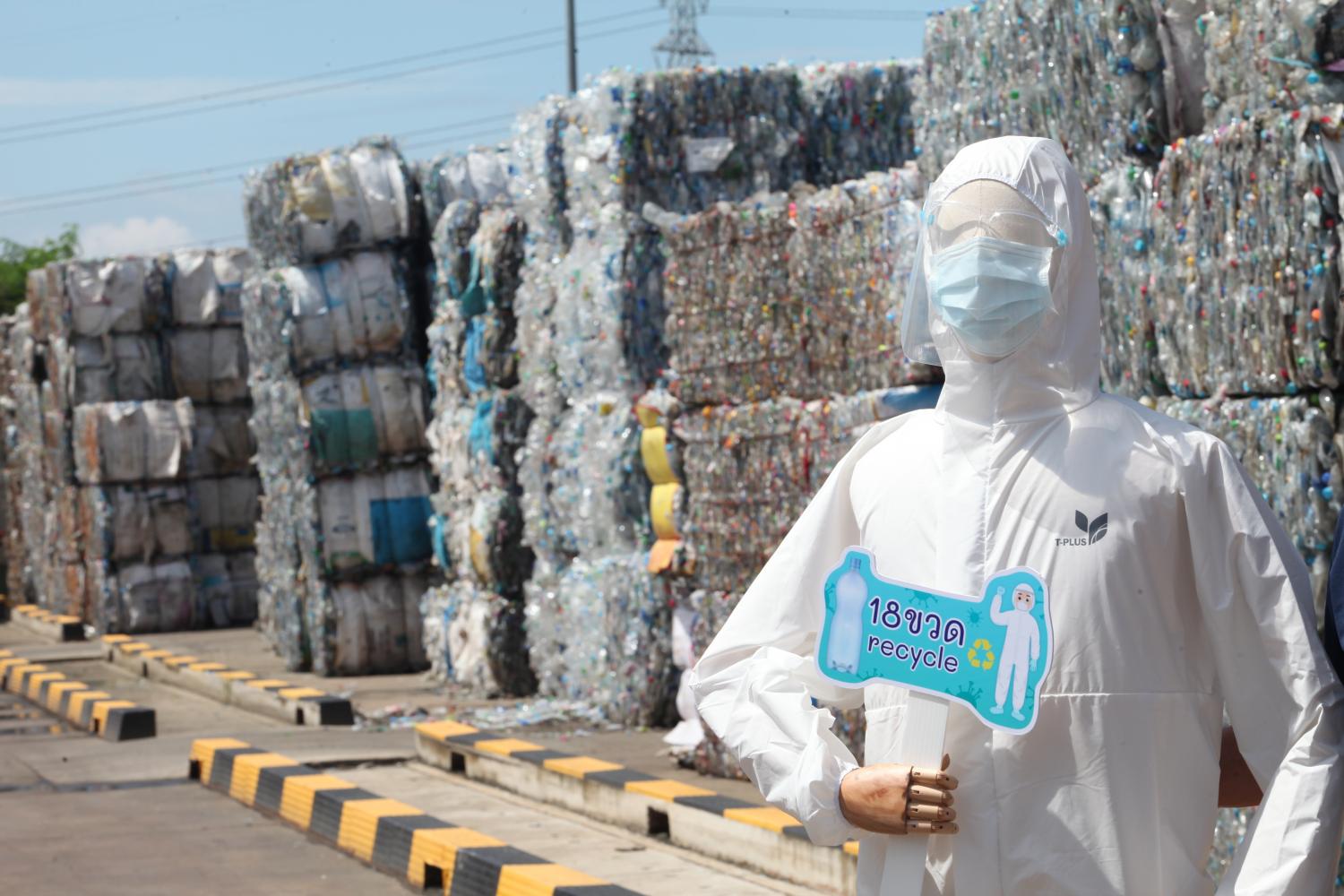
NAKHON PATHOM: HSBC Thailand and its allies have launched a project to solve shortages of protection coveralls to fight the Covid-19 pandemic.
They have launched a Corporate Social Responsibilty (CSR) scheme inviting more than 400 staff to donate drinking water plastic bottles that can be turned into high-quality yarn to produce the coveralls.
The CSR project "Separate PET Bottle to Help Doctors" kicked off in June.
PET, which stands for polyethylene terephthalate, is a form of polyester clothing fabric. It is extruded or moulded into plastic bottles and containers for packaging foods and beverages, personal care products, and many other consumer products.
According to the project, 18,600 millilitre drinking water plastic bottles can be changed into high quality yarn under the recycled procedure to produce one protective coverall for medical staff fighting against the pandemic.
HSBC collected a total of 11,275 PET bottles weighing 200 kilogrammes and handed them over to Indorama Ventures to produce the recycled yarn, making more than 650 recycled Personal Protective Equipment (PPE) coveralls which had been delivered to more than 200 hospitals nationwide since last month.
Thailand faced a shortage of PPE coveralls during the peak period of the Covid-19 outbreak in March and April due to high global demand.
At that time the country couldn't produce the yarn to make the preventive suits. The raw material was usually imported from Taiwan. Brainstorming from stakeholders at a crisis meeting came up with a solution.
Indorama Ventures is the country's first company to produce the recycled PET yarn to feed raw material to textile companies to make 16,000 PPE coveralls with 360,000 PET bottles under the campaign.
Krisda Phatcharoen, head of Commercial Banking, HSBC Thailand, said the campaign reflects the company's sustainability policy, which matched with Indorama Ventures and focused on its plastic recycling business to support sustainability for the environment.
When the issue of environmental sustainability and the Covid-19 situation was blended well together, it produced "an amazing outcome for helping those hard-working medical staff", Mr Krisda said.
"It is a good beginning for cooperation," he said. "We have seen solid outcomes from the project which has inspired us to do more in the future to promote our belief in sustainability."
Richard Jones, senior vice-president and head of corporate communications for Indorama Ventures, said it is estimated that Thailand produces 4.4 billion PET bottles per year.
From that, 85% of them are taken into the recycling system.
Indorama Ventures has its own recycled PET bottles operation in Nakhon Pathom province with a capacity of 33,000 PET flakes per year, he said.
Mr Jones said the company has collaborated with its partners to produce level-3 PPE coveralls to prevent disease infections.
With better yarn qualifications, the coveralls can be washed more than 50 times, compared with only 20 times for level-2 garments.
He said the company and its partners had given 500 sets of PPE coveralls at level 3 to the Government Pharmaceutical Organisation (GPO) to distribute to medical staff.
"We have received good feedback from medical teams," he said.
"They said the PPE suit fits well with their working environment.
"So it's a good example for circular economy, which could reduce plastic waste into the environment."
GPO board chairman Sophon Mekthon voiced his appreciation to the success, saying Thailand has moved forward in many ways during the public health crisis.
PPE coveralls from 100% recycled PET bottles have also passed laboratory tests conducted under international standards.